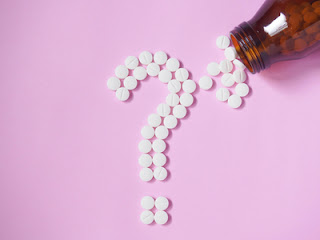Medications can assist people in early recovery in many ways, particularly during the withdrawal stage. In the first week or two of abstinence, a person’s body is extremely resistant to detox; cravings, urges, anxiety, and depression are several of the many symptoms that can accompany withdrawal. Without assistance, most people living with alcohol and substance use disorders are unable to abstain from using for long and relapse ensues.
In medical detox, patients receive prescription drugs to counter the symptoms of withdrawal. People with opioid use disorders typically receive a cocktail that can include buprenorphine to curb cravings and discomfort, and benzodiazepines to combat heightened anxiety. Naltrexone is a drug that is also utilized in early recovery after opioid detox, commonly known as Vivitrol, to help prevent relapse. Alcoholics in medical detox are often given an anti-anxiety medication to help the process along, keeping someone comfortable in the first days of withdrawal can make all the difference. Vivitrol has also shown some promise in helping people with alcohol use disorder by minimizing cravings.
When it comes to opioid addiction, people could call buprenorphine a wonder drug. Few people who have successfully traversed acute withdrawal can imagine how much worse the process would’ve have been without buprenorphine, commonly sold as Suboxone or Subutex. Such drugs can make a significant difference in achieving successful results in detox, i.e., completing addiction treatment and going on to work a program of long-term recovery. However, there is no such “wonder drug” for people attempting to abstain indefinitely from alcohol, despite some claims to the contrary.
Baclofen is Not A Miracle
Researchers from the University of Liverpool conducted a meta-analysis of previous studies involving the anti-spasticity drug baclofen, according to a university news release. In recent years, Baclofen has been utilized in the treatment of alcohol use disorder, believed to help people abstain from drinking by potentially reducing cravings, anxiety, and depression. What makes the drug unique or miracle-ish, is that it bypasses the liver and leaves the body through the kidneys, rendering baclofen useful for patients with organ failure due to alcohol use. The findings of the meta-analysis appear in in the Addiction journal.
After reading how baclofen may help an alcoholic, you may be tempted to think that such a drug could prove helpful in preventing relapse. The researchers, Dr. Abi Rose and Dr. Andy Jones, have something different to say about the medication. In fact, their research found no evidence that baclofen use led to increases in abstinent days or decrease number of heavy drinking days during [baclofen] treatment. What’s more, they didn’t find any indications that the medication reduces rates of alcohol craving, anxiety, and depression. Out of a sample of eight patients who receive the drug, only one person might remain abstinent due to the medication.
“This new meta-analysis shows that baclofen is no more effective than placebo on a range of key outcome measures, suggesting that the current increasing use of baclofen as a treatment for alcohol use disorders is premature,” said Dr. Andy Jones.
Alcohol Use Disorder Treatment
Medication is often an invaluable resource in early addiction recovery; both in medical detox and the weeks following withdrawal, post-acute withdrawal symptoms (PAWS) are not a walk in the park. In the first month of recovery, monitoring PAWS and treating the symptoms allows clients to get over obstacles that can lead to relapse. However, that treatment centers only rely on drugs whose efficacy is supported by research.
If you are struggling with alcohol use disorder, Hope by the Sea can provide you with safe and comfortable medical detox services, followed by long-term residential treatment. Under our care, we will equip you with tools for living a life of lasting addiction recovery. Please contact us today.


